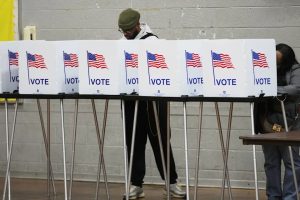Opinion | Zohran Mamdani said the quiet part out loud. Finally.
Zohran Mamdani moved me to tears.
The New York City mayoral candidate released a six-minute video on Friday about his identity as a Muslim and the galling Islamophobia he has endured during his campaign, which quickly went viral.
“To be Muslim in New York is to expect indignity. But indignity does not make us distinct — there are many New Yorkers who face it. It is the tolerance of that indignity that does,” Mamdani said. “In an era of ever-diminishing bipartisanship, Islamophobia has emerged as one of the few areas of agreement,” he added.
At last, Mamdani, one of the highest-profile Muslims in this country, said the quiet part out loud — or at least spoke the truth in a way that resonated across audiences. He detailed just a few of the hideous examples of Islamophobia his opponents have engaged in recently, such as when former New York Gov. “Andrew Cuomo laughed and agreed when a radio show host said that I would cheer another 9/11,” and when New York City Mayor Eric Adams said Mamdani and his followers wanted to “burn churches.”
Then the 34-year-old mayoral candidate announced he was done shaping himself in response to this vitriol. He was done implicitly apologizing for being Muslim by relegating his faith to “the shadows,” softening his identity as a Muslim in order to make himself appear more palatable to an audience for whom the nucleus of normal is whiteness. No more bending in an effort to be seen as “more than just my faith.”
As Muslims, we are so often reduced to our faith — it is the beginning and end of how we are seen, treated and categorized in a way that simply does not happen with other religions.
“I will be a Muslim man in New York City,” Mamdani concluded. “I will not change who I am, I will not change how I eat, I will not change the faith that I am proud to belong to. But there is one thing I will change: I will no longer look for myself in the shadows— I will find myself in the light.”
It’s hard to overstate how powerfully his words resonated. The contortions and daily indignities so many of us Muslims endure are exhausting at best and humiliating at worst. I’ve watched my brother shave his beard whenever he flew into or out of America because of the incessant profiling and the Islamophobic questioning that ensued. I’ve watched my father be “randomly” interrogated as a traveler with a frequency that seemed anything but random. I myself have been interrogated on multiple occasions while traveling. Once, when I asked why, I was simply told that I had been put on “a list.” When I inquired further, I was told I was not allowed to know which list or why.
I wake up every day fearing the implications of my faith in this country, unsure what my being Muslim will mean in a month, in a year, in three years. And that is absolutely the point. It is a climate designed to terrorize.
I spent last year completing my master’s at Harvard — a campus that has become a flashpoint for pro-Zionist and pro-Palestine advocacy. There, I heard and witnessed some students enact covert and overt forms of anti-Muslim bias with impunity. Had Muslim students said similarly egregious things or done similarly outrageous things toward Jewish students or pro-Zionist students— critically, two separate identities — the response would be and has been different.
Muslim and pro-Palestine students across the country have been expelled, doxxed and barred or excluded from certain forms of employment. While I certainly do not intend to reproduce a cynical worldview that pits Jews and Muslims against each other — many of the most vocal and ardent supporters of Palestine are Jewish students — the reality is that there are few arenas where this double standard is more stark than advocacy around Israel and Palestine. While anti-Blackness is still rampant in this country, for example, there is at least a consensus among Democrats and other liberal factions that such bias is wrong in a way that simply does not apply to anti-Muslim bias.
Consider another way in which Mamdani’s video was notably deft: He was unequivocal in owning his identity as a Muslim man while also presenting himself in the fullness of his humanity. He honored the centrality of his faith while not allowing himself to be reduced to it. In doing so, he managed to convey the nuance that so many of us long for and that this anti-Muslim climate attempts to deny us.
What’s more, Mamdani implicitly wove into his messaging themes that are integral to Islam. The Quran portrays Allah as being deeply invested in quashing oppression and as being deeply invested in justice. We find this in some of Allah’s 99 names: Al-Muqsit (The Just One), Al-Muntaqim (The Avenger) and Al-Adl (The Embodiment of Justice). And, as The Prophet famously said, “Beware of the supplication of the oppressed, for there is no veil between it and Allah.”
Mamdani’s message honors what the Quran teaches us all, what my faith teaches me — that, to echo James Cone, the father of Black liberation theology, we “know where god is and what god is doing in the revolution.”
And, much like Mamdani, while my faith is central to who I am, it is not all of what I am. I pray that his message, which has seemingly captivated so many hearts, galvanizes us to collectively condemn the cultural and material violences our society has both normalized and embraced. To quote Mamdani, “No more.”
This article was originally published on MSNBC.com


